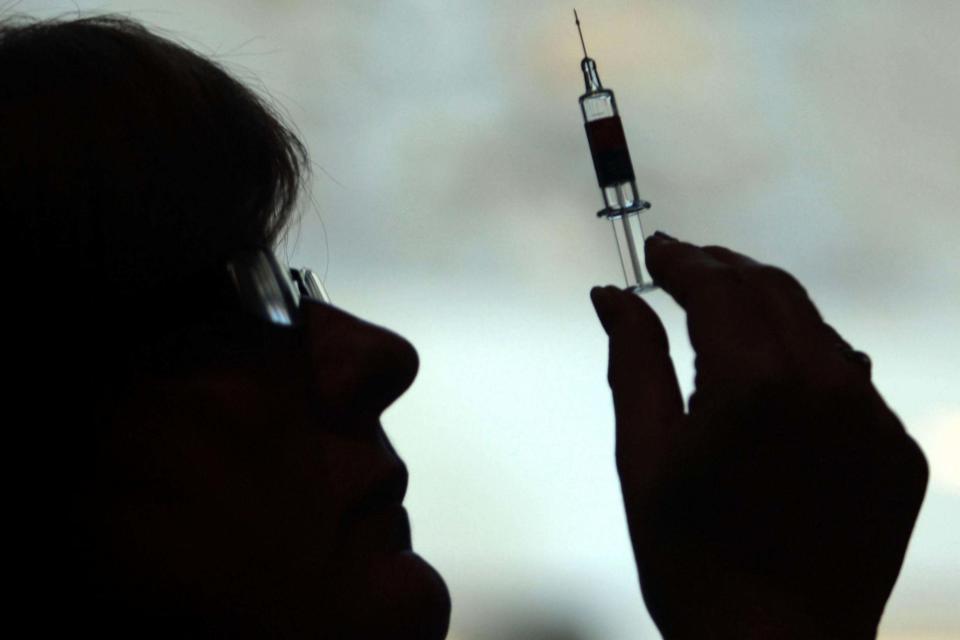One in five UK adults say they're unlikely to get coronavirus vaccine

One in five UK adults say they are unlikely to get a coronavirus vaccine if one is approved, a new study highlighting "concerning" levels of misinformation regarding the pandemic has revealed.
Citing factors including worries about unforeseen effects, preferences for natural immunity, concerns about commercial profiteering, and mistrust of vaccine benefits, 22 per cent of 17,500 adults surveyed by University College London (UCL) researchers said they would be unlikely to opt for an inoculation.
One in 10 respondents meanwhile said they were “very unlikely” to get a coronavirus vaccine if one is approved. By comparison, three-quarters (78 per cent) of the adults surveyed said they would be “likely” to get vaccinated, with 49 per cent saying they were “very likely” to do so.
Almost one in three (30 per cent) participants in UCL’s Covid-19 Social Study, which is funded by the Nuffield Foundation and is the UK’s largest study into how adults are feeling during lockdown, showed substantial beliefs that vaccines can cause unknown future problems.
Meanwhile, 15 per cent said they believed to varying degrees that vaccines do not work.
Twice as many people (21 per cent) said they would be “very unlikely” to get the flu vaccine compared with those who said the same for the Covid-19 vaccine, with 64 per cent saying it was likely they would do so.
The study authors said their findings suggest there is a substantial and worrying level of misinformation among the public and highlight fears that “lack any basis in fact”.
Lead author Dr Daisy Fancourt, from UCL’s Institute of Epidemiology and Health Care, said: “Our study highlights a concerning level of misinformation around vaccines, which could significantly affect uptake once a Covid-19 vaccine is approved.
“Whilst the majority of people have said they are likely to get a Covid-19 vaccine once one is available, a worrying amount of respondents have said that not only will they not get the vaccine, but that they don’t believe vaccines work or worry about potential side-effects, concerns that lack any basis in fact.
“It is critical the Government and public health bodies publicise the importance of getting a vaccination, and explain why it will be critical in fighting the virus and protecting society.”
More than a third (38 per cent) of respondents to UCL's study - which has seen more than 70,000 people questioned weekly over the past 26 weeks - reported believing to varying degrees that natural immunity is better than immunity from vaccines.
Over half (53 per cent) said they believe vaccines can cause unforeseen effects, while a quarter reported believing that vaccines are used for commercial profiteering.
And 4 per cent said they strongly believe that vaccine programmes are a con from pharmaceutical companies, and public authorities promote vaccination for financial gain.
Cheryl Lloyd, education programme head at the Nuffield Foundation, said: “These findings reveal valuable insights into public concerns about vaccinations and highlight the importance of building public trust in the safety and efficacy of a Covid-19 vaccine, particularly at a time when there is a significant lack of confidence in the Government response to the pandemic.
“Given people’s reasons for distrust of vaccines, transparency about the scientific evidence and the role of commercial providers is likely to be a key factor in gaining public trust, as is involving the public in the decision-making process.”
The results of UCL's survey came amid reports the UK could be readying to host the world's first Covid-19 "human challenge trials" in which healthy volunteers are infected with coronavirus to test the effectiveness of experimental vaccines.
The studies are expected to begin in January at a secure quarantine facility in east London, according to a Financial Times report. Those taking part will be inoculated with a vaccine before receiving a “challenge” dose of Sars-Cov-2, the virus that causes Covid-19, under controlled conditions a month or so later.
A Government spokesperson confirmed ministers were looking into collaborating on the potential development of a vaccine through such human challenge trials.
Any trial that involves exposing people to Covid-19 would need to be approved by the UK Medicines and Healthcare products Regulatory Agency (MHRA), as well as an independent research ethics committee.
There are currently 36 vaccines being tested in clinical trials globally, including one being developed by the University of Oxford that is already in an advanced stage of testing.
Read more
Emergency jobs plan to be unveiled as new restrictions come into force
UK volunteers could be infected with Covid-19 for vaccine test
When could a coronavirus vaccine be available to the public?
Fourth covid-19 vaccine study enters final stage in US
Imperial’s Covid vaccine could be approved by 'middle of next year'
Russia 'to register second potential Covid-19 vaccine by mid-October'
Vallance: Coronavirus vaccine could be available at end of the year

 Yahoo News
Yahoo News 